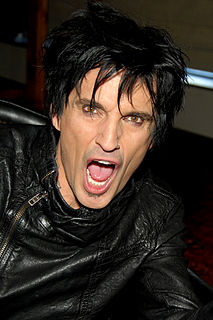A Quote by Hillary Clinton
Occasionally I’ll be sitting somewhere and I’ll be listening to someone perhaps not saying the kindest things about me. And I’ll look down at my hand and I’ll sort of pinch my skin to make sure it still has the requisite thickness I know Eleanor Roosevelt expects me to have.
Related Quotes
Her mother died at the age of 29, essentially turning her face to the wall and deciding to die. And so we can only imagine the agony she felt. And Eleanor Roosevelt really wanted to make her mother happier, and - and to make her live, you know, make her want to live. And there's something about, you know, when your mother dies, this sense of abandonment. I think Eleanor Roosevelt had a lifelong fear of abandonment and sense of abandonment after her parents' death.
Well, in Washington, this is a very hard time for Eleanor and Franklin. This is when Lucy Mercer first appears. And Lucy Mercer is Eleanor Roosevelt's own secretary. Very beautiful young woman, not unlike Eleanor Roosevelt: tall, blonde, thick haired. And FDR is having an affair with her, which Eleanor Roosevelt finds out when FDR returns from Europe in 1918 with the famous flu of 1918.
On international relations, Eleanor Roosevelt really takes a great shocking leadership position on the World Court. In fact, it amuses me. The very first entry in her FBI file begins in 1924, when Eleanor Roosevelt supports American's entrance into the World Court. And the World Court comes up again and again - '33, '35. In 1935, Eleanor Roosevelt goes on the air; she writes columns; she broadcast three, four times to say the US must join the World Court.
I try to be true to myself yet still at the same time look at comments and look at what the fans have to say and kind of put it in perspective. I'm never someone whose not open for opinion, I'm always just down to make it work and see how we can do things but at the end of the day I always want to make sure it represents me. It's really about just being humble and not selling yourself on being there already.
One has to say that they [Eleanor and Franklin Roosevelt] were pioneering to some extent. They didn't know that some of the housing projects that they were putting up for the poor were going to turn into crack dens and rapists' bowers and things of that sort, which they have since become. But you can't always foresee the future. I'm sure their intentions were the best.
In one way, it is this sense of order and also love that, I think, really saved Eleanor Roosevelt's life. And in her own writing, she's very warm about her grandmother, even though, if you look at contemporary accounts, they're accounts of horror at the Dickensian scene that Tivoli represents: bleak and drear and dark and unhappy. But Eleanor Roosevelt in her own writings is not very unhappy about Tivoli.
One of the things for me, as a biographer, that is so significant is for Eleanor Roosevelt - the child who never had a home of her own, who lives in her grandmother's home and then goes to school and then gets married and lives in her mother-in-law's homes, and then in public housing (like the White House and the State House) - housing becomes for Eleanor Roosevelt the most important issue.
I don't think [Parkinson's] is Gothic nastiness. There's nothing on the surface that's horrible about someone with a shaky hand. There's nothing horrible about someone in their life saying, "God, I'm really tired of this shaky hand thing" and me saying, "Me, too." That's our reality. We have no control over it.
I think that it is true that Eleanor Roosevelt, by being so active on that front, contributed to that impression very substantially. And it's to her credit that she was interested in this, let me say. But once again, I'm not sure the extent to which Roosevelt - I guess he did use her really, particularly on the civil rights front. No question about it, because she was well identified out there, and brought a good many blacks into the Administration, into the White House, into his presence and so on.




























